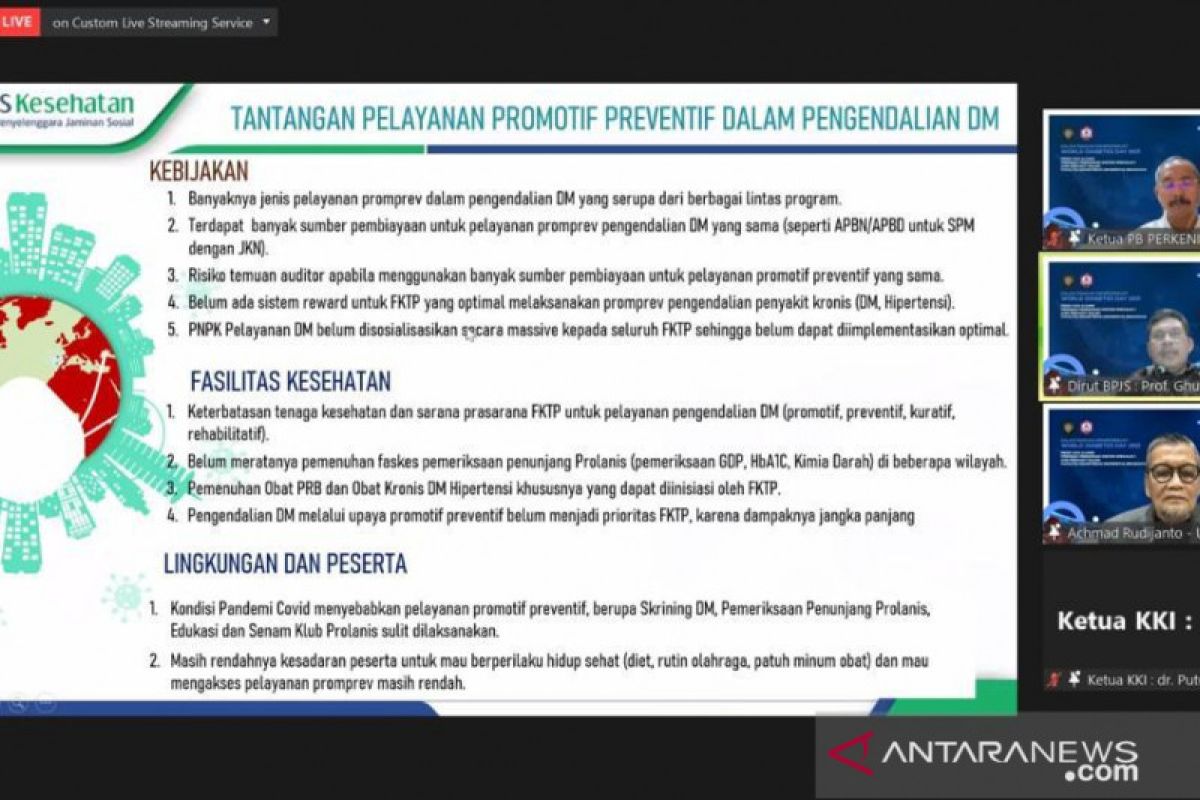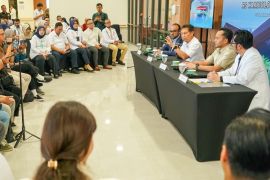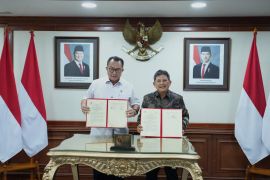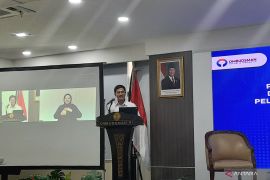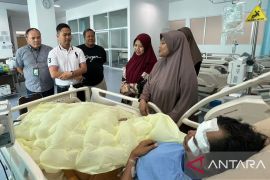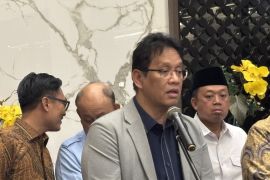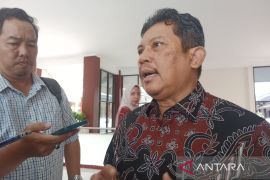Early examination is very crucialJakarta (ANTARA) - The Healthcare and Social Security Agency (BPJS Kesehatan) has bolstered promotional and preventive activities of the First Level Health Facilities (FKTP) to reduce diabetes cases in Indonesia, the agency's President Director Ali Ghufron Mukti stated.
"Diabetes mostly developed among members of the National Health Insurance and Healthy Indonesia Card (JKN-KIS) in the age bracket of 51-65 years, with a 57-percent case prevalence from the total cases since the 2017-2020 period," he remarked.
During the event to commemorate World Diabetes Day 2021 here on Sunday, Mukti noted that BPJS Kesehatan had spent Rp20 trillion to pay for services and medicines to prevent catastrophic diseases, such as diabetes, throughout 2020.
He pointed out that the increasing number of cases from year to year had become a cause for concern while emphasizing the importance of promoting preventive efforts and implementing a healthy lifestyle since an early age.
In order to provide services to members, especially those with diabetes, BPJS Kesehatan has collaborated with 22,965 FKTPs and 2,567 hospitals, according to Mukti.
In addition, BPJS Kesehatan has striven to present innovations to control and handle diabetes, such as by providing teleconsultation service with FKTP doctors and holding the Chronic Disease Handling Program (Prolanis) online.
Moreover, a medicine iteration policy for a JKN-KIS member with chronic disease, mobile queue on Mobile JKN, and health screening are of paramount importance.
"Early examination is very crucial," Mukti affirmed.
"Hence, we continue to push FKTP to encourage members to lead a health lifestyle and conduct early detection through health screening that could be accessed through the Mobile JKN application as an effort to detect the disease risk and prevent further impact of it," he stated.
In its application, BPJS encounters numerous challenges in controlling diabetes, Mukti added.
The other difficulties faced are the limitation of health workers and FKTP's facility and infrastructure for diabetes control service as well as inequitable fulfillment of examination facilities to support Prolanis.
"In addition, Medical Service National Guideline (PNPK) within the diabetes service has not been disseminated on a large scale to all FKTP, thereby resulting in a non-optimal implementation," Mukti stated.
"However, observing the commitment and streamlined efforts being continually made by the government and other stakeholders, we are optimistic that the effort to control diabetes could become better in future," he expounded.
During the same event, Head of the Indonesian Society of Endocrinology (PERKENI) Executive Board Ketut Suastika stated that the core duty of the PERKENI Executive Board is to edify health workers and create an education model.
Suastika believes that if education efforts are continued, then the competency of health workers in primary and secondary services could be developed and refined.
He expects an improvement in the services offered at health facilities, especially diabetes service, through coordination carried out by BPJS Kesehatan and the Health Ministry.
Meanwhile, Indonesian Doctor Council (KKI) Head, Putu Moda Arsana, stated that the council supports the move to add more health workers.
However, Arsana noted that the additional number of health workers should also be qualified in order to handle diabetes comprehensively.
Related news: 68 million Indonesians obese due to unhealthy diet: ministry
Related news: Diabetes management in elderly depends on family care: BKKBN
Related news: Indonesia officially joins CDiC to extend aid to diabetic children
Translator: Andi Firdaus, Fadhli Ruhman
Editor: Sri Haryati
Copyright © ANTARA 2021
